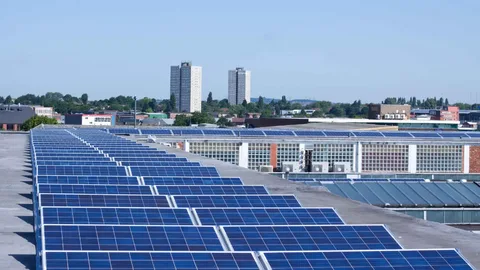Choosing the Right Commercial Solar System: A Complete Buyer’s Guide
As businesses worldwide strive to reduce operational costs and minimize environmental impact, solar energy has become a popular solution. However, choosing the right commercial solar systems can be a complex task that requires understanding various factors to ensure maximum efficiency and return on investment. This comprehensive buyer’s guide will walk you through the essential considerations for selecting the perfect solar setup for your commercial needs.
Why Invest in a Commercial Solar System?
Before diving into the specifics, it’s important to understand why commercial solar systems are a smart investment. Solar energy not only reduces electricity bills but also helps businesses meet sustainability goals, attract eco-conscious customers, and qualify for government incentives. Properly selecting a system tailored to your business size and energy demands is crucial for realizing these benefits.
Assessing Your Energy Needs
The first step in choosing the right commercial solar system is to evaluate your current energy consumption. Analyze your electricity bills over the past year to determine peak usage times and total kilowatt-hours (kWh) consumed. This data helps in sizing the system appropriately, ensuring it covers your needs without excessive expenditure on surplus capacity.
Types of Commercial Solar Systems
Understanding the types of solar systems available can guide your choice:
- Grid-Tied Systems: These are connected to the local utility grid, allowing businesses to use solar power when available and draw electricity from the grid otherwise.
- Off-Grid Systems: Ideal for remote locations, these systems operate independently but require battery storage.
- Hybrid Systems: Combining grid connection with battery backup, hybrids offer flexibility and resilience.
Each type has its pros and cons, so consider your business location, reliability needs, and budget.
Key Components to Consider
When choosing the right commercial solar system, pay attention to the quality and specifications of key components:
- Solar Panels: Look for high-efficiency panels with strong warranties.
- Inverters: These convert solar power into usable electricity; quality affects performance.
- Mounting Systems: Ensure they are durable and suitable for your roof or ground installation.
- Batteries (if applicable): Choose reliable storage options to maximize energy use.
Evaluating Costs and Incentives
Cost is a major factor in any commercial solar project. Besides the upfront installation price, consider maintenance expenses and potential savings on energy bills. Don’t forget to explore government rebates, tax credits, and other incentives that can significantly reduce the total cost.
Choosing a Reliable Solar Provider
Partnering with an experienced solar provider can make a huge difference. Look for companies with proven track records, positive reviews, and strong customer support. A reputable provider will conduct a detailed site assessment and tailor a system that fits your specific needs.
Conclusion
In summary, choosing the right commercial solar system involves a thorough assessment of your energy consumption, understanding system types, selecting quality components, and evaluating costs alongside available incentives. By following this complete buyer’s guide, your business can confidently invest in a solar solution that drives sustainability and financial savings for years to come.


